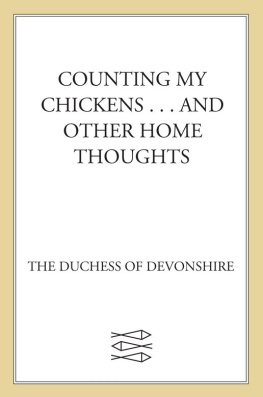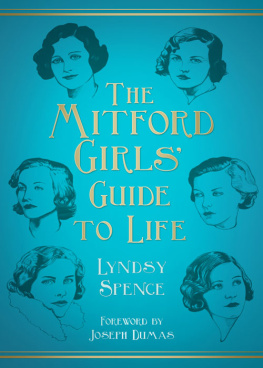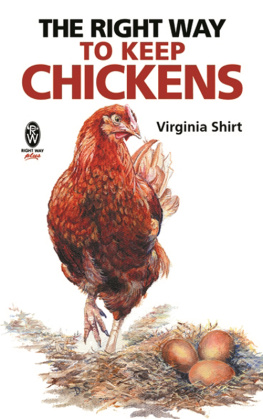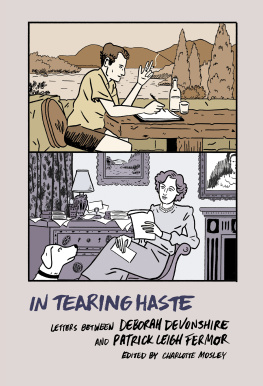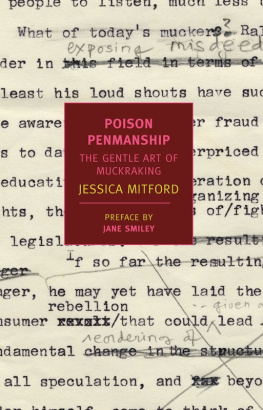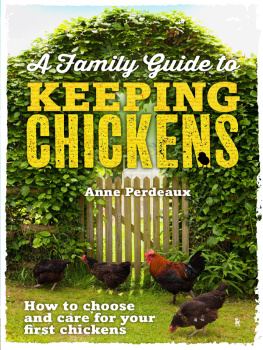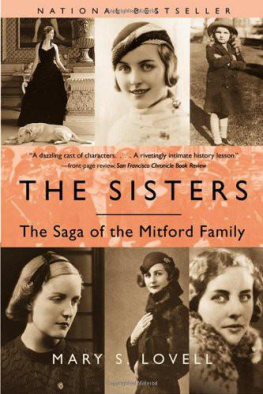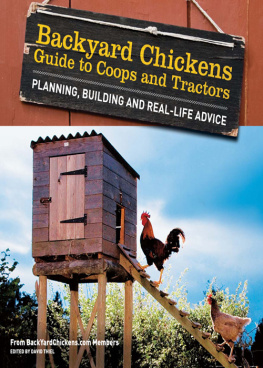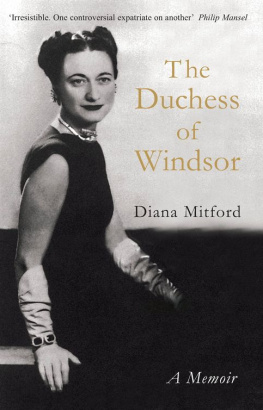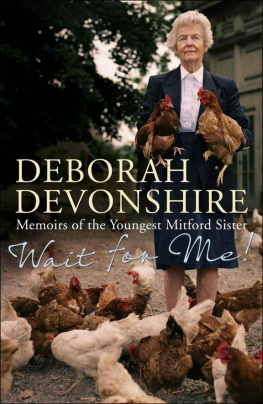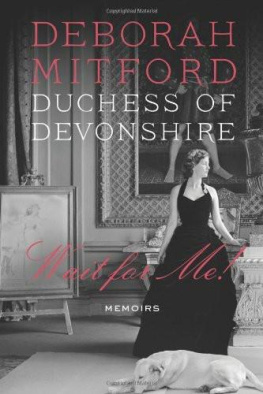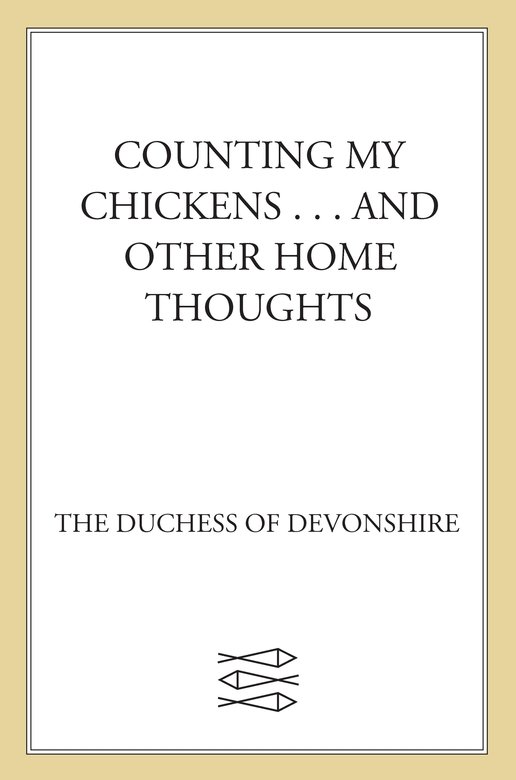The first sentence of a diary given to a nine-year-old child at Christmas, written on New Years Day and kept faithfully till at least 10 January, was got up, dressed, had breakfast. The first sentence of a book is a different matter and very difficult indeed. I have been pondering over this for some time. I asked my sister Jessica what to do. She tells me that in America, if you pay some money, you can get advice as to how to begin and then go on to be a famous author. They say put down the on a bit of paper, add some words, keep on adding, and Bobs your uncle (or the American equivalent), youre off and the rest will follow. It doesnt seem to work. Just try. So, hopelessly stuck and faced with the empty page, see how other people manage. Lately we have been reminded of I had a farm in Africa I had a farm in Derbyshire somehow doesnt sound as good, and anyway it would be a lie, because in England things like farms seldom belongto women. Having failed with the, try and. And it came to pass, too affected, and you cant go on in that biblical style. When you open books to see how it is done, it seems so easy, set down there in the same type as the rest, as if it was no trouble at all, the second sentence flowing out of the first one like one oclock. Believe me, the writer has suffered over those words. As fifty thousand books are published every year, the first sentences must add hugely to the level of anxiety in an already anxious race.
I looked at the television programme about Uncle Harold, private life trotted out like a story in a film. He would have considered the fashion for such entertainment unspeakably vulgar. And so do I. The point about Dorothy Macmillan was her charm, energy, and earthiness; there were no frills. She was one of the few people I have met who was exactly the same with whomever she was talking to, oblivious oftheir classsomething which people keep on about now almost as much as they do about sex. She gave her whole attention, laughed easily, was unread and not smart, and was a tireless constituency worker. I was always told that it was she who won the elections at Stockton-on-Tees. Her time in Downing Street was famous for childrens parties, and the branches, more than flowers, which she dragged up from the garden at Birch Grove in the back of her car. When Uncle Harold was Housing Minister, Andrew, my husband, was president of the Building Societies Association. It seemed to be indicated that Andrew should ask his aunt to the annual dinner as guest of honour. She asked, Shall I wear my best dress or the other one? The thought of the other one made us wonder.
Harold was an intellectual and a politician all right, no doubt about that; but the mistake so often made of putting people into categories left him there, and did not allow for his interest in the family publishing business and many different aspects of life, including his devotion to field sports. The press called that the grouse moor image. After he married, hisfather-in-law expected him to go out shooting, even though he had never before fired a shotgun. Reg Roose, a Chatsworth gamekeeper and a delightful man, was detailed to be his tutor. Uncle Harold was a quick learner. Years later, Reg and I watched his performance when large quantities of pheasants flew high across a valley with the wind behind them. Doesnt the Prime Minister shoot well? I said. Yes, answered Reg proudly. I taught him and hes fit to go anywhere now.
When Uncle Harold was ninety, he stayed with us for three months. I will always remember his perfect manners. He dined alone with me often, and I am sure he would have welcomed other company. But he talked as if I were his intellectual equalha, haor another ex-Prime Minister, and I almost began to think I was. For much of the day, he sat in an armchair in his bedroom and listened to tapes of Trollope. (It made me nervous when he dropped off, lest his smouldering cigar should fall into the wicker wastepaper basket by his side.) He once told me of a mistake made by the suppliers of the tapes. I think there is something wrong. They have sent a curious book called Lucky Jim , by a feller called Amis. Have you ever heard of him? I dont like it much. Must be a very peculiar man. He was frail and shuffled down the long corridors at his own speed. He couldnt find thedoor to the hall, and I heard him mutter, The trouble with this house is you have to throw double sixes to get out.
His relationship with President Kennedy was worth watching. The President had never seen anything like him, and you could say the same for Uncle Harold. They struck up an unlikely friendship and were more surprised and more amused by each other at every meeting. They talked endlessly on the telephoneusually in the middle of the night. I used to hear of these conversations from both participants. It was the time when initials of organisations began to be used as a sort of shorthand. One night, after speaking of Castro, they went on to discuss SEATO and NATO. Uncle Harold was stumped for a moment when the President said, And hows Debo? When Mrs Thatcher was new to the job he had had for years, she went to see him. Oh good, I said, and did you talk? No, he replied, she did.
Uncle Harolds good manners were often tested when he stayed with us. I am not good at place table , and one night I saw he was sitting at dinner between my son and his friend, both in their first year at Eton. There was the usual political crisis on, and thePM was preoccupied with his own thoughts, while the boys anxiously cast round for a suitable subject of conversation. After a long silence, I heard Sto say, Uncle Harold, Old Moores Almanack says youll fall in October. To his eternal credit, after a suitable pause, he answered, Yes, I should think thats about right.
It is strange to see your family enacted on television from an old book about them, written half a century ago. I suppose the royal family and politicians such as Bush and Mandy, whose ancestors played a part in public life, do so continually. But for ordinary folk, it is indeed an odd experience. It was also odd to read the reviews. Mr Paul Hoggart in The Times made me sad. I dont know what wing he favours politically, but his dismal summing-up of what was meant to be high comedy reminded me for all the world of my sister Deccas Communist friends of years gone by. They were incapable of enjoying themselves, had never really laughed at or about anything in their lives, and tobe in their company for long was a lowering experience. Decca saw jokes better than anyoneit was her far-left friends determination to see the downside of everything that was reminiscent of Mr Hoggarts summing-up of the first episode of Love in a Cold Climate . He disapproves in a governessy way of the idea of my father hunting my sisters with his bloodhounds for fun . What else would he have done it for? (Alas, I was considered too young to be hunted, and by the time I was of huntable age, the bloodhounds had gone.) I know that some misguided people, for reasons best known to themselves, are against hunting foxes, but surely children are fair game? He complains, too, about a mothers reaction to the hideous appearance of her newborn baby. I wonder if, in his sheltered life, the reviewer has ever seen a newborn baby. Referring to Nancy, he goes on to say that she presents her cast as freaks. Another reviewer states we were the lunatic fringe. Oh dear, freaks and lunatics. Well, never mind.

